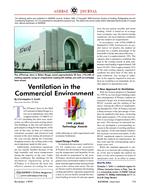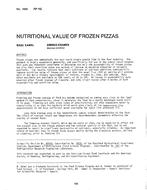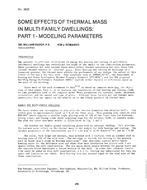Hot water usage of a large hotel in Southeast Asia was monitored continuously for several months at 10-minute intervals. Analysis of these data shows a distinct monthly mean diurnal pattern of usage, which seems independent of the season. The paper presents and discusses differences between this pattern and those of a similar nature that have been recommended in the literature. Moreover, it was found, rather surprisingly, that. the daily total consumption of hot water of the entire hotel is not directly proportional to the number of occupants nor to the number of rooms occupied. This suggests that simplistic recommendations, on an annual basis, between daily total hot water” usage and occupancy rate, without due consideration of time of the year, be treated with caution.
Though this analysis is limited to a single hotel at Bangkok, Thailand, and the time period of data recorded covers only a single year, the findings of this paper may have implications both in energy conservation and in the design of hot water systems (both conventional and solar) for large hotels Southeast Asia, especially due to the absence of other studies of this nature.
Units: SI
Citation: ASHRAE Transactions, 1987, vol. 93, pt. 2, Nashville, TN
Product Details
- Published:
- 1987
- Number of Pages:
- 6
- File Size:
- 1 file , 550 KB
- Product Code(s):
- D-NT-87-3107


